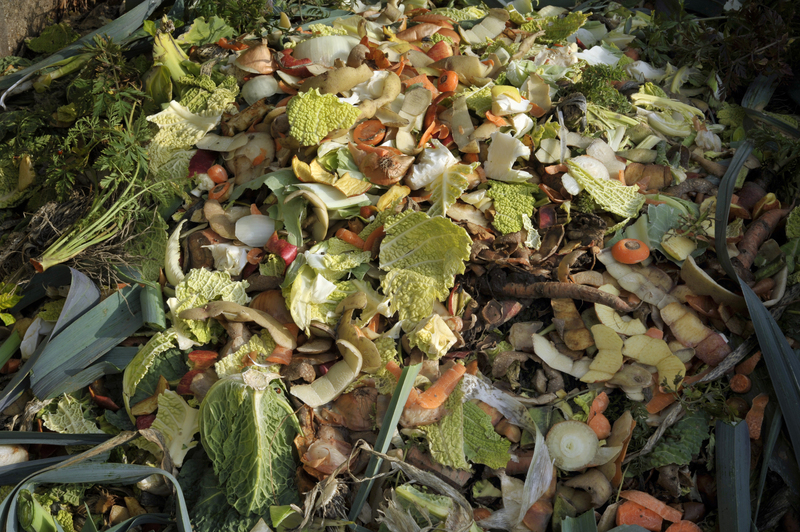Introduction to Sustainable Waste Management for Commercial Spaces
Sustainable waste management is a crucial element for maintaining the health and well-being of our planet. As commercial spaces continue to grow, so does their consumption and the waste they produce. Incorporating sustainable methods for managing waste in these environments is not only environmentally responsible but also beneficial for businesses in terms of cost savings, reputation, and regulatory compliance. This article delves into the significance of sustainable waste management for commercial spaces and provides actionable insights to implement these practices effectively.

Understanding Sustainable Waste Management
Sustainable waste management involves the strategic handling of waste materials to minimize environmental impact and promote resource efficiency. Unlike traditional waste management, which often revolves around disposal, sustainable practices focus on reducing waste generation, reusing materials, recycling, and recovering resources. For commercial spaces, this means integrating systems and processes that lessen the ecological footprint while creating economic and social value.
Steps to Implement Sustainable Waste Management
1. **Waste Audit**: Conducting a waste audit is the first step. It involves analyzing the types and volumes of waste generated within the commercial space to identify areas for improvement.
2. **Reduce Waste Generation**: Implement policies and practices that reduce the amount of waste produced. This can include double-sided printing, digital documentation, and purchasing products with minimal packaging.
3. **Reuse Materials**: Encourage the reuse of materials within the office or commercial space. For example, repurpose old office furniture or donate it to charity instead of throwing it away.
4. **Recycling Programs**: Set up comprehensive recycling stations for paper, plastics, metals, and electronic waste. Train employees on what can be recycled and how to properly dispose of recyclable items.
5. **Composting**: For commercial spaces with kitchens or food services, composting organic waste can significantly reduce landfill contributions.
6. **Supplier Collaboration**: Work with suppliers to reduce packaging waste and opt for products made from recycled or sustainable materials.
7. **Green Procurement**: Purchase eco-friendly office supplies and equipment that have a lower environmental impact throughout their lifecycle.
Technologies in Sustainable Waste Management
Utilizing technology can significantly enhance the effectiveness of waste management practices in commercial environments. Innovations such as smart bins equipped with sensors can monitor waste levels in real-time, enabling more efficient waste collection schedules. Additionally, waste analytics software can provide data-driven insights to further optimize waste reduction strategies.
Employee Engagement and Education
A successful sustainable waste management program requires the active participation of everyone in the commercial space. This can be achieved through:
- **Training Programs**: Regular training sessions to educate employees about the importance of sustainable waste management and how they can contribute.
- **Incentives**: Create incentives for employees to participate in waste reduction and recycling initiatives.
- **Clear Signage**: Use clear and informative signage to guide proper waste disposal and recycling practices.
Pros and Cons of Sustainable Waste Management
**Pros**:
- Environmental Benefits: Reduced landfill waste and lower carbon footprint.
- Cost Savings: Lower waste disposal costs and potentially lower supply costs through reduced consumption.
- Regulatory Compliance: Alignment with environmental regulations and standards.
- Enhanced Reputation: Improved brand image and customer loyalty by demonstrating corporate responsibility.
**Cons**:
- Initial Investment: May require upfront costs for implementing sustainable systems and technologies.
- Employee Buy-in: Requires a cultural shift and continuous employee engagement.
- Complexity: Management of new systems can be complex and require additional training.
Tips for Effective Sustainable Waste Management
- Start with a pilot program to identify what works and then scale up.
- Regularly review and update waste management policies.
- Collaborate with other businesses to share best practices.
- Use adaptable metrics to measure progress and identify areas for improvement.

Takeaways
1. Sustainable waste management is essential for environmental stewardship and can lead to significant financial benefits for commercial spaces.
2. A combination of waste auditing, reducing, reusing, recycling, and composting is effective in managing waste sustainably.
3. Employee engagement and education are critical success factors.
4. Technology can greatly assist in optimizing waste management processes.
Conclusion
Sustainable waste management for commercial spaces is not just an environmental imperative but also a strategic business approach. By embracing sustainable practices, businesses can reduce their ecological footprint, comply with regulations, and improve their bottom line. It requires a collaborative effort, technological investment, and continual education of all stakeholders. With the right strategies in place, commercial spaces can contribute significantly to a sustainable future while reaping economic and social benefits.
